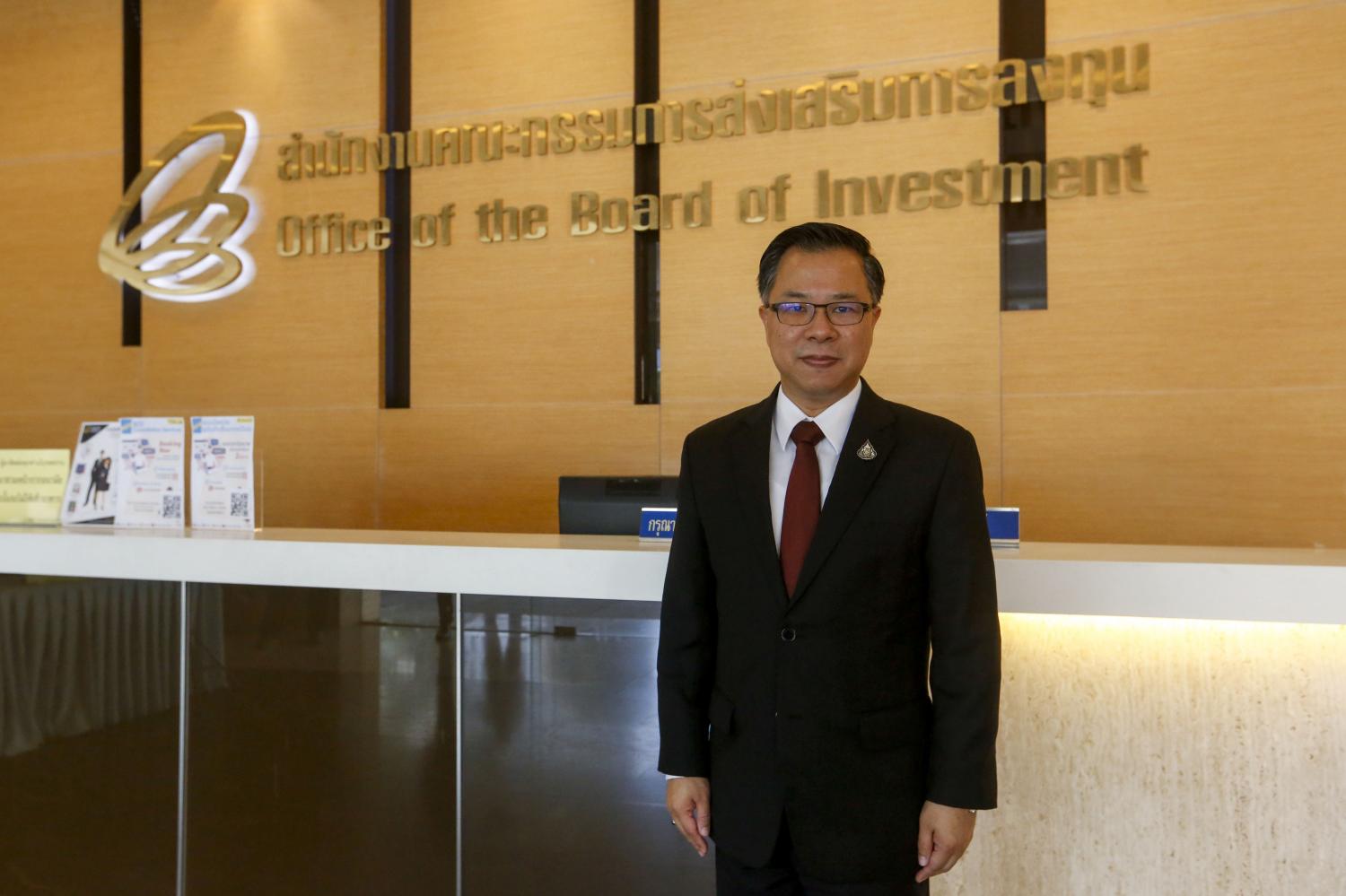
China and Hong Kong are expected to dominate foreign direct investment in Thailand over the next 5-10 years thanks to its rapidly recovering economy during the pandemic and the Chinese government's policy to encourage overseas investment amid a trade row with the US, says the Board of Investment (BoI).
Narit Therdsteerasukdi, the BoI's deputy secretary-general, said Japan will remain the core investor in Thailand because most large-scale Japanese companies have already established production bases in the country, but China and Hong Kong will become instrumental in Thailand's foreign direct investment over the next 5-10 years.
"China is the first country to recover from the deadly coronavirus," said Mr Narit.
"More importantly, the Chinese government remains committed to developing high technology, digital and innovation."
Beijing declared six years ago the "Made in China 2025" national strategic plan to move away from being a global factory of cheap low-tech goods facilitated by lower labour costs and supply chain advantages.
The strategy aims to upgrade the manufacturing capabilities of Chinese industries, moving away from labour-intensive workshops towards a more technology-driven powerhouse.
The plan's goals include increasing the domestic content of core materials to 40% by 2020 and to 70% by 2025, respectively.
To help achieve greater independence from foreign suppliers, the initiative encourages increased production of high-tech products and services, with the country's semiconductor industry central to the plan.
He said advances in chip technology may lead to breakthroughs in other areas of technology, handing the advantage to whoever has the best chips, something that is currently out of Beijing's reach.
Other industries integral to the 2025 strategy include aerospace, biotech, information technology, smart manufacturing, maritime engineering, advanced rail, electric vehicles, electrical equipment, new materials, biomedicine, agricultural machinery and equipment, pharmaceuticals and robotics manufacturing, many of which have been dominated by foreign companies.
According to Mr Narit, other key factors that could entice Chinese investment are Thailand's attractive incentives, the government's flagship Eastern Economic Corridor (EEC), continued infrastructure development and the country's geographical location.
He said the rising cost of labour on the mainland, which increased on average 10% a year between 2010 and 2015, as well as the prolonged trade spat between China and the US have encouraged Chinese investors to invest more abroad.
Mr Narit also pointed to Thailand's high potential to supply Asean.
Investment from China and Hong Kong in Thailand has risen rapidly over the last decade.
Chinese investment applications reached 100 projects for the first time in 2012, compared with an average of 40-50 projects in previous years.
In 2019, Chinese investment applications in Thailand surpassed those from Japanese companies for the first time. The value tallied 262 billion baht, besting Japanese investment, which was No.2, at 73.1 billion.
Investment from Hong Kong ranked third with a value of 36.3 billion baht.
However, in 2020 Japanese companies regained the top spot in foreign direct investment in Thailand with 75.9 billion baht. China was second at 31.5 billion baht, followed by the US with 24.6 billion.
Mr Narit said the government needs to step up its efforts in making the country more attractive for investment, suggesting many foreign investors have baulked at outlays here because of the country's lower competitiveness.
The government should improve laws and regulations that still obstruct foreign investment, such as stringent rules on hiring talented foreign workers, he said.
According to Mr Narit, infrastructure development in the EEC should also be accelerated, as well as the development of EEC of innovation and EEC of digital, which have been designated locations for investment in innovation and high technology, respectively.
Thailand should hasten the creation of more free trade agreements (FTA) such as the Thai-EU FTA and the Comprehensive and Progressive Trans-Pacific Partnership to upgrade Thailand's competitiveness, he said.
These agreements will help expand markets for Thai products, said Mr Narit.
Human resource development is also essential as the next step in the development of the high technology industry, he said.
Educational institutes need to join companies to produce and supply talented workers that meet the demand from the private sector, said Mr Narit.
Thailand needs to strengthen the competitiveness of its supply chain in targeted industries such as smart electronics, along with smart cars to upgrade auto parts manufacturing.